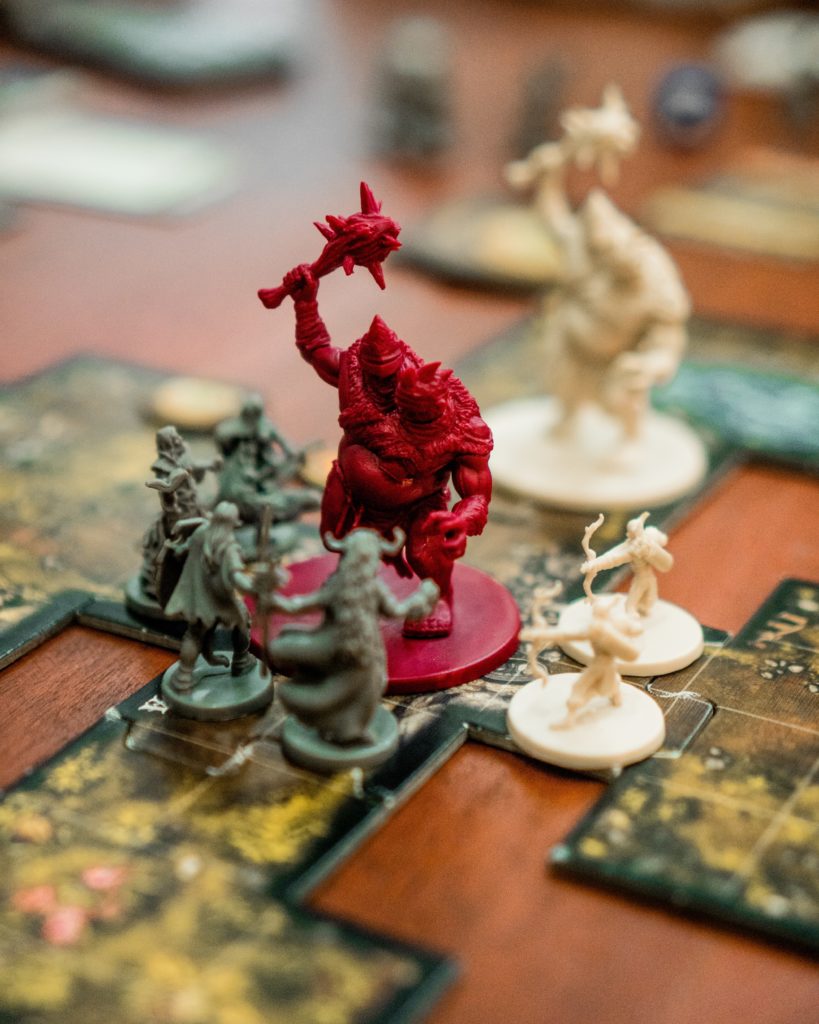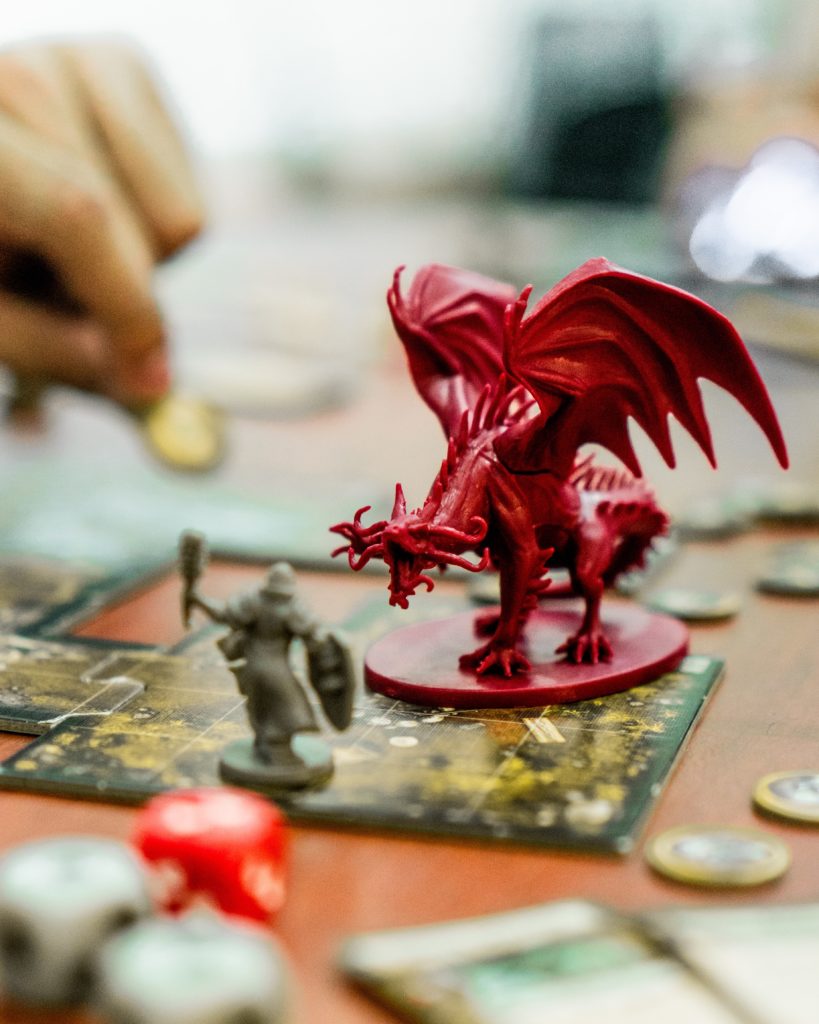Header courtesy of Tim Foster, Unsplash
Dungeons and Dragons and Tutoring, on first glance, such a sentence sounds like nonsense. Even on a second glance, okay, maybe the same. But on the third, you’re bound to ask yourself: what do these things have in common and why has she decided to write about them? I didn’t start thinking about this myself until I had several conversations at the UCWbL where we considered hosting a D&D night at our offices.
Well, with the quarantine and everything, that’s not on our minds so much at the moment, but, that hasn’t stopped my thoughts from spiraling, thinking of the connections, of the ways that both emphasize collaboration and cooperation.
For the uninitiated, Dungeons and Dragons (D&D) is a tabletop game in which friends often get together to create stories that span a wide variety of genres. One day, the group might tackle a murder mystery, while the next, the group must go to an infested barn to clear it of dangerously giant wasps — really, there is no limit to the shenanigans that people can get up to when they plan. What matters most during these play sessions, however, is the shared narrative that is created between the group, and the bonds that are formed and strengthened in the process.

So how exactly does it work and how is it similar to tutoring? Well, like there is a tutor and writer dynamic in a writing center, in D&D, there is a Dungeon Master and the player. The Dungeon Master (DM) is the one who has the most knowledge about the game, the world, and what is likely to happen in a session of play.
As such, they function much in the role of the tutor, prepared for what is to happen but flexible about negotiating how or what will pan out. Writers on the other hand, function much like players, bringing their work to be thought over by everyone and then discussed about how it might happen. In D&D however, there are often at least three players, making this collaboration and negotiation process much more complicated and multi-layered — not everyone will have exactly what they want happen, and they do not know what exactly the others have planned.
In both D&D sessions and writing appointments, everyone involved must make an active effort to communicate their expectations and concerns or things may not go well for all involved. In D&D, if players do not communicate the type of game they wish to play, then the DM must simply guess at what everyone might like. This also happens vice versa, where a DM may have a great idea, but no one understands it or what is expected of them, and so a play session goes poorly simply because the people involved did not communicate with one another.

If you are a tutor more unfamiliar with your writer, you can work to prevent some misunderstandings from occuring by laying out the expectations in the UCWbL. For instance, if a writer comes in expecting line edits for their work and I as a tutor do not communicate our core practices and values to our writer, then they may be confused by the feedback I give and how I go about it. In the end, the writer may even grow aggravated and annoyed as their request for feedback has seemingly gone unheard
This advice, however forward-looking, may not immediately seem applicable to tutors in the middle of an appointment, or DMs in a play session. Take, for instance, an example of where a DM or player makes a mistake which has dire consequences for the structure of the game. Or, speaking from personal experience as a DM, when you find yourself accidentally taking out the group’s favorite character, the fallout can be hard. Likewise, in a tutoring session, you as a tutor might mis-speak or misunderstand something, resulting in some awkward conversations. It is at times like this that you have to overcome your own pride and attempt to bridge the gap, asking ‘Okay, so what happened here? How is everyone feeling? Is it okay?’.
Hopefully, if you are with people (or a writer) who wants to resolve things well, you can then open a dialogue about how to go forward. Sometimes the solutions to misunderstandings are not what you would expect, and even in writing center contexts, we can still improvise while attempting to recover from unexpected encounters.

Bridging these moments of miscommunication, but more importantly, communicating beforehand to prevent them is thus something both D&D and the writing center has in common. Knowing all of this, how can we apply collaboration techniques used during a play session in D&D at the UCWbL?
One way is that, as writing tutors, we can remind ourselves that, like a DM in D&D, we are working with another (or others!) to help arrive at some sort of end goal. Regardless of genre, neither of us involved in an appointment has to be the ultimate expert, we just need to be willing to trust one another and see what we can accomplish together. Saying this, I hope that those of you who have played D&D can think of the ways that your time playing has helped you adjust to the challenges of tutoring, or even vice versa.
Both activities are those that ask us to grapple with unknown situations, trust others in the process, and ultimately, build bonds with others.

